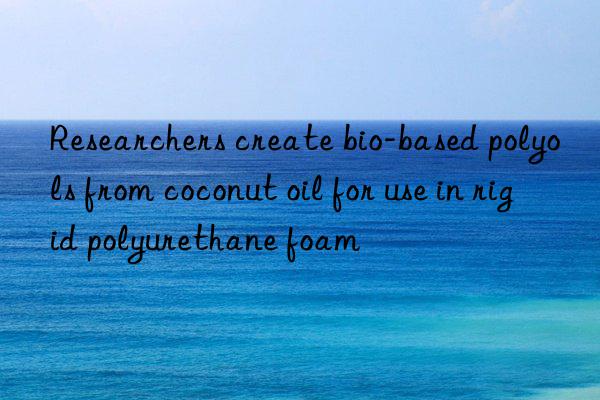
Scientists at the Center for Sustainable Polymers at the Iligan Institute of Technology have developed a method to make hydroxyl-rich biobased polyols from coconut oil. They believe that this bio-based polyol is suitable for insulation applications.
Vegetable oils need to be chemically modified to insert the necessary hydroxyl groups, usually by double bond epoxidation followed by ring opening. While saturated oils can be modified by esterification and amidation, the resulting polyols still have a low hydroxyl number, which means that fossil-based polyols still need to be replaced if effective rigid polyurethane foams are to be made.
Coconut oil is widely used as a renewable raw material source for polyols because it is inexpensive and plentiful. The scientists overcame this problem by extracting triglycerides from coconut oil and subjecting them to a glycerolysis reaction followed by catalytic amidation. The result was an amino polyol, p-CDEA, with a hydroxyl number of 361 mg KOH/g, higher than earlier coconut oil-based polyols, which ranged from 270-333 KOH/g.



 微信扫一扫打赏
微信扫一扫打赏
